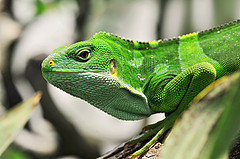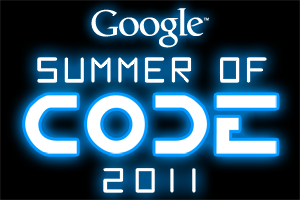openSUSE happy to welcome 16 GSOC students!
28. Apr 2011 | News Team | No License
 We’ve got excellent news! We’ve received many excellent submissions for our Google Summer of Code application and Google has given us 16 slots. This means that 16 eager students have been selected and will start working with their mentors on an awesome openSUSE project!
We’ve got excellent news! We’ve received many excellent submissions for our Google Summer of Code application and Google has given us 16 slots. This means that 16 eager students have been selected and will start working with their mentors on an awesome openSUSE project!
According to the GSOC timeline the students will now start with the Community Bonding period in which they have time to set up their development stuff, get acquainted with their mentors and get to know the openSUSE community. This means we’ll see those students on our communication channels, be it IRC, forums or mailing lists! Give them a warm welcome! In a little over three weeks, the coding will start. I’m sure you’re all excited to find out what projects these students will be working on! Well, we were too, so we’ve compiled a nice list of the accepted proposals and asked a few students a quick quote on IRC!
SAX3
A project which will probably draw much praise is ‘SAX3’ which indeed, as the name suggests, aims to write a successor for the popular SAX tool. Manu Gupta, an Indian openSUSE contributor who has been around as openSUSE WIKI and marketing contributor will be mentored by Michal Hrusecky. Manu was jumping with joy following the “you’ve been accepted into GSOC” email on Monday, happy to have a chance to bring back
"one thing old openSUSE users were missing :)"
While Manu has been around openSUSE and might not have to introduce himself over the coming 3 weeks, he is still extremely happy with this opportunity. Promoting openSUSE and Free Software in general is not easy in India and having had the opportunity to work for an international community sponsored by such a well-known entity as Google will surely help him convince others of the value of Free Software!
fillup-ng
Christos “mpounta” Bountalis is a fresh Greek contributor from Salamis, an island near Athens. On the obvious question what Salamis has to do with the famous meat product he answered that they just sound similar… He got involved with openSUSE because he
"found many helpful and fun people, and that made me wanna be involved with openSUSE specifically"
So he found a cool GSOC idea on the wiki and sent in a proposal.
[![by cpt
"Fillup is a tool for merging sysconfig files which is widely used in openSUSE. fillup-ng, the tool that i will write will offer similar functionality with new features like support for other configuration files like xml, .ini maybe etc. fillup-ng will be implemented following a modular architecture that will support plugins and will make the process of maintaining and further improving the application a lot easier for everyone"
. For end users, fillup is sometimes useful to merge configuration files but mostly it is a tool ‘under the hood’ making the life of openSUSE developers easier.
And as our former board member Pascal “Yaloki” Bleser commented,
"it has to merge existing settings with your changes or defaults that come from the package, etc... hence not necessarily as trivial as it might sound :)"
OBS Plasmoid
We have to give a big Kudos! to Saurabh Sood. His GSOC project did not make it in the 16 slots but we heard from his mentor Will “Bille” Stephenson that he has decided to do it anyway! According to Bille:
"the preparatory work he has done in learning about javascript Plasmoids and OBS has inspired him to do the project voluntarily"
More
But those are just a few of the projects. You can find a list on the Google Summer of Code site here but we’ll include a short overview below.
Create a testsuite for btrfs features
Aditya wants to extend the XFS testsuite to test btrfs-specific functions like snapshot creation/deletion, balancing and relocation.
PackageKit backend and AppStream integration for Software Center
Alex Eftimie will be part of the AppStream initiative, porting Ubuntu’s Software Center to PackageKit and integrating OCS based metadata to provide a GNOME based software installer for openSUSE.
Heroku like solution for SUSE Studio
Bjørn Arild Mæland wants to work on the Dister command line tool. He aims to add support for Rack (Ruby) and WSGI (Python) compliant web frameworks. The goal is to improve the user experience so people and make for example the use of direct Amazon EC2 deployment easy.
openSUSE Build Service (OBS) for Android
Justine Leng wants to improve and add to the interface, not only making the Android OBS interface more powerful but also more stable by writing a test suite.
![by [mementosis] on flickr](/wp-content/uploads/2011/04/mementosis.jpg)
new python obs library (osc code cleanup)
Marcus Hüwe will cleanup the osc (command line tool for OBS) code and refactor it into a new python OBS library and make sure osc uses it.
SUSE bug reporter
Mihnea Dobrescu-Balaur aims to write a SUSE bug reporter to help users submit bugreports more easily while at the same time ensuring better quality.
Separating and Porting YUI library to other operating systems (Linux Based)
N.B.Prashanth wants to separate the YUI library from YaST. In YaST, YUI is responsible for allowing to have separate GUI frontends for one backend code. YUI supports GTK, Qt as well as ncurses but currently only works on (open)SUSE due to its dependency on YaST. Having a separated YUI will allow other projects to use it to write toolkit-independent applications.
Add ext4 snapshots support to snapper
Piyush will add Ext4 support to Snapper, the btrfs snapshot management tool in openSUSE.
Command line client for Suse Studio Abstract
Ratan aims to develop a command-line tool to build appliances.
ICC Device Profile Repository
Sebastian Oliva will create a a color database to allow clients to request or submit color profiles for color managed devices. Color profiles are critical to ensure accurate color reproduction on print and screen content.
Creating a browser-based user interface test-suite
Stoyan Dimkov will design and implement an automated browser-based test-suite for the web interface of OpenSUSE Build Service.
Porting Wubi to OpenSUSE
weijie yang wants to simplify OpenSUSE’s installation for new users. He will do this by taking Ubuntu’s Wubi tool and porting it to openSUSE.

Wow
Yes, it is an impressive list of projects. While usually not all GSOC projects succeed, these proposals were pretty solid and we have high expectations of the students. Of course, it will depend not only on them. Mentors will need to be available and for the rest of us - we also need to help out! Not only by being welcoming, giving advice and answering their questions but also by keeping them engaged and asking questions, showing interest in what is going on!
We wish the Google Summer of Code students as well as anyone else who’s using this opportunity to get involved with Free Software the very, very best the coming 4 months!
Categories: Google Summer of Code
Tags: